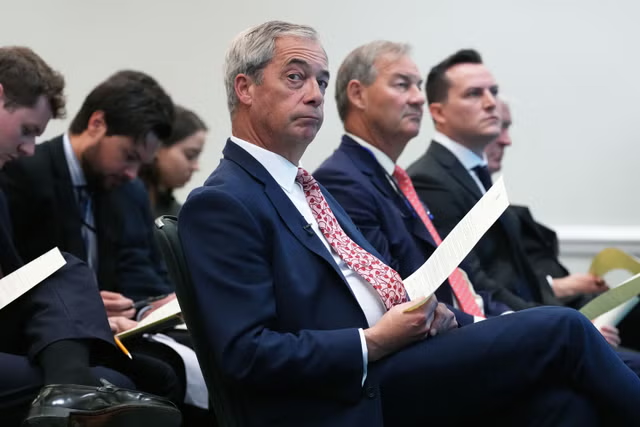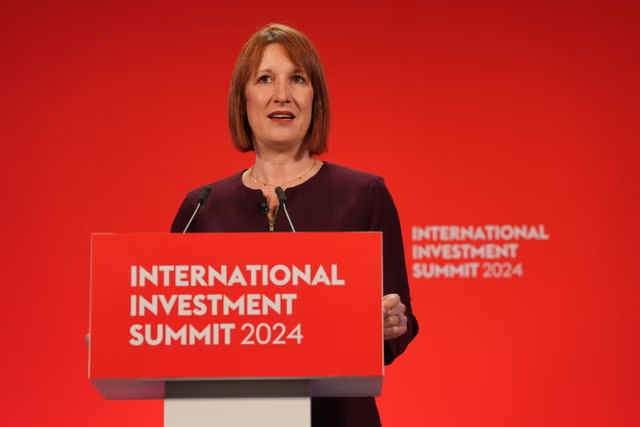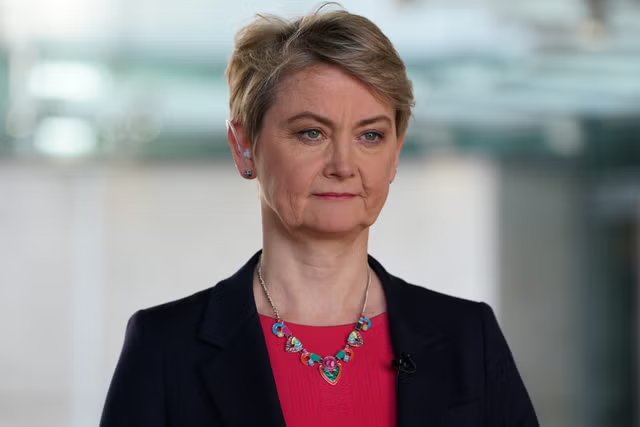Your support helps us to tell the story
Support NowThis election is still a dead heat, according to most polls. In a fight with such wafer-thin margins, we need reporters on the ground talking to the people Trump and Harris are courting. Your support allows us to keep sending journalists to the story.
The Independent is trusted by 27 million Americans from across the entire political spectrum every month. Unlike many other quality news outlets, we choose not to lock you out of our reporting and analysis with paywalls. But quality journalism must still be paid for.
Help us keep bring these critical stories to light. Your support makes all the difference.
Rachel Reeves has been warned that hiking employer national insurance contributions would be “a straightforward breach” of the Labour manifesto.
The chancellor has been told by Paul Johnson, director of the influential Institute for Fiscal Studies (IFS), that the party said “very clearly” it would not make the change.
Speculation has mounted that Ms Reeves is laying the groundwork to hike employer national insurance contributions while keeping the levy on employees unchanged.

Currently employees pay the charge at 8 per cent of their earnings above £12,500, while employers pay a flat rate of 13.8 per cent.
In Labour’s manifesto, the party promised: “Labour will not increase taxes on working people, which is why we will not increase national insurance.”
But last Wednesday, Sir Keir Starmer repeatedly refused to rule out raising the rate of employer national insurance contributions. And on Sunday, business secretary Jonathan Reynolds said the manifesto pledge only applies to employee contributions, the clearest indication yet that Labour is considering the change.
Speaking to Times Radio, Mr Johnson said: “It seems to me that would be a straightforward breach of a manifesto commitment. I went back and read the manifesto and it says very clearly ‘We will not raise rates of national insurance.’ It doesn’t specify employee national insurance.”

But Mr Johnson said that Ms Reeves will “almost certainly” have to breach Labour’s pledge in one way or another if she wants to raise significant sums at the 30 October Budget.
His think tank has previously warned that Ms Reeves needs to find £25bn a year in tax hikes to deliver on Labour’s promise to end austerity and rebuild public services.
“It’s probably less damaging to raise national insurance or income tax or VAT than it would be to try and get similar amounts in other ways,” Mr Johnson said. He added that hiking employer national insurance by 1 percentage point would “probably not” be very damaging to jobs and could raise up to £17bn a year. “So it’s a big chunk of money from a relatively small proportionate change in a very big tax,” he said.
Shadow work and pensions secretary Mel Stride said it would be “absurd” for Labour to hike national insurance for employers and claim it was not a breach of the party’s manifesto.
Mr Stride told the Sky News programme Sunday Morning with Trevor Phillips that Labour had “boxed themselves in” by “claiming they were not going to be a party that was going to have to put up taxes”.
He said: “That leaves you with a narrow field of taxes now to go for.
“I think if they go for employers’ national insurance, firstly, it’s a very bad tax to raise, because it’s a tax on jobs, and what they should be about is growth and increasing productivity in the economy.
“The second thing is, I think it goes totally counter to their manifesto that assured us they would not be putting up national insurance.”
Business secretary Mr Reynolds said the pledge in Labour’s manifesto not to raise national insurance applies to employees, but not to employers.
“That pledge, it was taxes on working people, so it was specifically in the manifesto, a reference to employees and to income tax,” said Mr Reynolds.
But Mr Reynolds would not say whether the change would be made in the Budget.
The prime minister has warned that Labour’s first Budget in more than 14 years will be “very painful” as the party seeks to “fix the rot” left by the Conservatives.
Disclaimer: The copyright of this article belongs to the original author. Reposting this article is solely for the purpose of information dissemination and does not constitute any investment advice. If there is any infringement, please contact us immediately. We will make corrections or deletions as necessary. Thank you.



